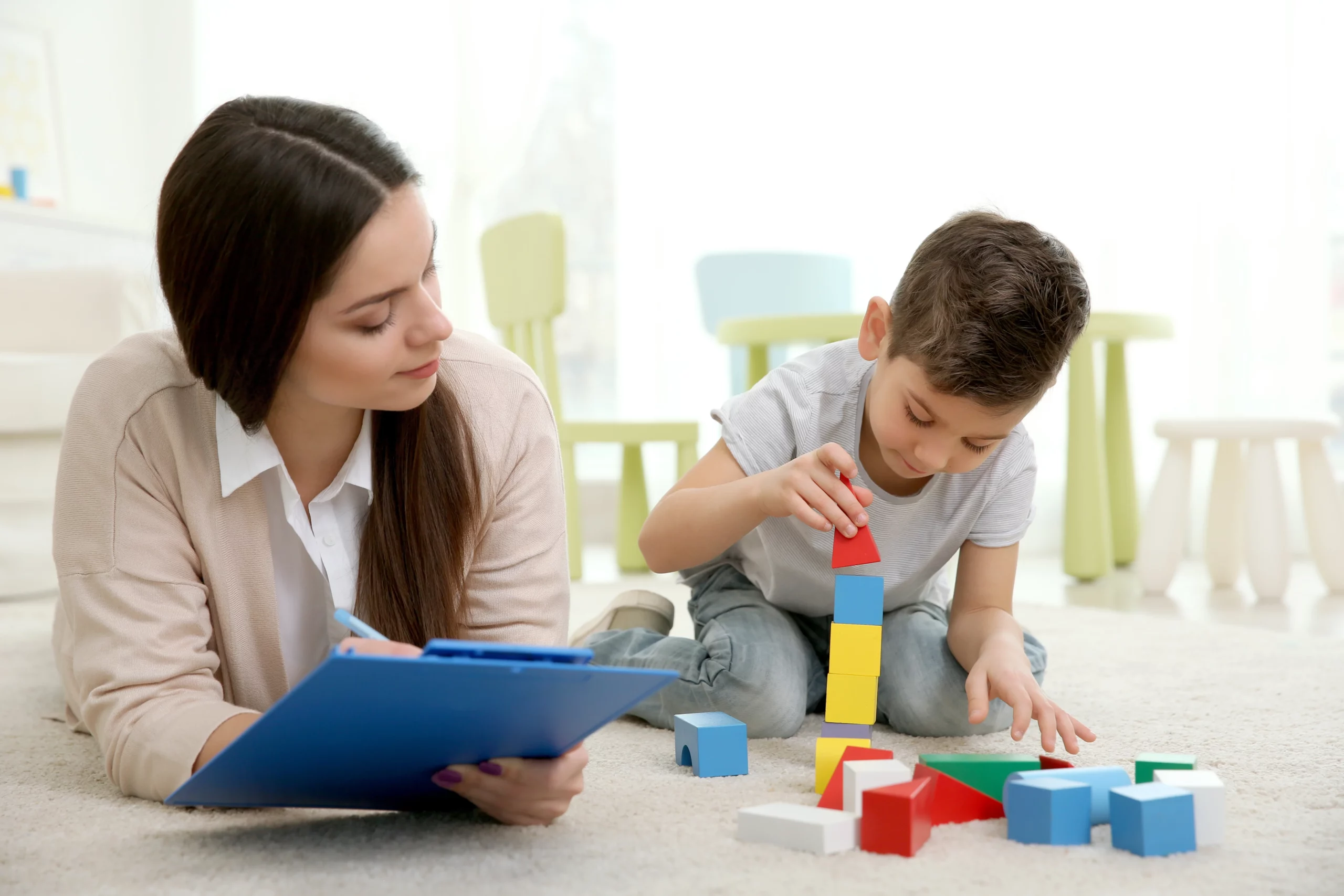In the intricate dance of child development, gross motor skills take center stage, providing the foundation for physical competence, coordination, and a healthy lifestyle. As a leading pediatric clinic committed to the holistic well-being of children, we recognize the paramount importance of nurturing gross motor skills. In this comprehensive guide from a pediatric occupational perspective, we embark on a journey to explore the stages of gross motor skills development, unveil purposeful activities and exercises to promote these skills, celebrate the pivotal role of outdoor play, and highlight how our dedicated occupational therapists at Therapy Care can play a crucial role in enhancing gross motor development.
Understanding Gross Motor Skills Development
Gross motor skills involve the coordinated use of large muscle groups and are essential for activities that require strength, balance, and coordination. As children progress through different developmental stages, they attain significant milestones in gross motor skills:
Infancy (0-12 months):
- Holding Head Up: Develops neck and upper body control.
- Rolling Over: Enhances upper body strength and coordination.
- Crawling: Strengthens upper body and introduces coordination.
Toddlerhood (1-3 years):
- Walking: Marks the achievement of independent mobility.
- Running and Climbing: Refines gross motor skills and introduces balance.
- Jumping: Develops leg strength and coordination.
Preschool Years (3-5 years):
- Pedaling a Tricycle: Coordinates leg movements and promotes balance.
- Kicking a Ball: Enhances leg strength and introduces aiming skills.
- Simple Coordination: Hopping, skipping, and jumping activities develop coordination.
School-Age Children (6-12 years):
- Skipping and Hopping: Mastering more complex gross motor skills.
- Sports Participation: Fostering agility, strength, and teamwork.
- Climbing and Swinging: Engaging in activities that enhance coordination and upper body strength.
Adolescents (13-18 years):
- Fine-Tuning Sports Skills: Continues refinement of gross motor skills in specific sports.
- Strength Training: Developing muscle strength and endurance.
- Complex Movements: Engaging in intricate dance or sports maneuvers.
Activities and Exercises to Promote Gross Motor Skills
Infancy (0-12 months):
- Tummy Time: Strengthens neck and upper body muscles.
- Reach and Grab Toys: Promotes hand-eye coordination.
- Gentle Swinging: Introduces the concept of balance.
Toddlerhood (1-3 years):
- Obstacle Course: Enhances crawling, climbing, and coordination.
- Dance and Movement Games: Encourages various gross motor movements.
- Ball Rolling: Develops hand-eye coordination.
Preschool Years (3-5 years):
- Hopscotch: Introduces hopping and jumping.
- Balance Beam Activities: Develops balance and coordination.
- Outdoor Play Structures: Enhances climbing, swinging, and sliding skills.
School-Age Children (6-12 years):
- Jump Rope: Boosts cardiovascular fitness and coordination.
- Bike Riding: Develops pedaling, steering, and balancing skills.
- Sports Participation: Enhances specific gross motor skills relevant to each sport.
Adolescents (13-18 years):
- Team Sports: Fosters teamwork and advanced gross motor skills.
- Strength Training: Builds muscle strength and endurance.
- Outdoor Adventure Activities: Challenges gross motor skills in dynamic environments.
Outdoor Play for Gross Motor Development
Outdoor play is a cornerstone of promoting robust gross motor skills development in children. The outdoor environment provides a diverse and stimulating setting for children to engage in activities that foster physical, cognitive, and social development:
1. Spatial Awareness:
-
- Outdoor play allows children to navigate diverse terrains, enhancing spatial awareness and the ability to negotiate obstacles.
2. Risk-Taking and Confidence:
- Climbing trees, running, and engaging in outdoor activities encourage healthy risk-taking, fostering confidence and resilience.
3. Sensory Stimulation:
- Natural elements such as grass, sand, and water provide varied sensory experiences, promoting a holistic development of the senses.
4. Social Interaction:
- Outdoor play often involves group activities, promoting social skills, cooperation, and teamwork.
5. Vitamin D and Overall Health:
- Sunlight exposure during outdoor play supports the production of vitamin D, crucial for bone health and overall well-being.
6. Imagination and Creativity:
- The open-ended nature of outdoor environments sparks creativity and imaginative play, contributing to cognitive development.
How Our Occupational Therapists Can Help
At Therapy Care, our dedicated team of occupational therapists is committed to optimizing gross motor skills development in children. Our specialists employ evidence-based strategies and individualized interventions to address specific challenges and enhance overall physical competence:
1. Comprehensive Assessments:
- Our occupational therapists conduct thorough assessments to identify a child’s current gross motor skill levels, strengths, and areas that need improvement.
2. Tailored Interventions:
- Based on assessment results, personalized interventions are designed to address specific gross motor skill challenges, incorporating a variety of activities and exercises.
3. Fine and Gross Motor Integration:
- Our therapists emphasize the integration of fine and gross motor skills, recognizing their interconnected nature and importance in overall development.
4. Sensory Integration Techniques:
- For children with sensory processing challenges, our therapists implement sensory integration techniques to address sensitivities and enhance sensory awareness during gross motor activities.
5. Outdoor Play Sessions:
- Our clinic provides dedicated outdoor play sessions, allowing children to engage in gross motor activities in a supervised and supportive environment.
6. Parent and Caregiver Education:
- We empower parents and caregivers with the knowledge and tools to support gross motor skills development at home, ensuring continuity of progress beyond clinic sessions.
7. Collaborative Approach:
- We collaborate with educators, parents, and other professionals involved in a child’s care to ensure a holistic approach to gross motor skills development.
8. Progress Monitoring:
- Regular assessments and progress monitoring enable our therapists to track a child’s development, make necessary adjustments, and celebrate achievements.
Conclusion
Gross motor skills development is a dynamic and integral aspect of a child’s journey toward physical competence and well-being. At Therapy Care, our passionate occupational therapists are dedicated to guiding children through this crucial developmental pathway. By combining purposeful activities, outdoor play, and personalized interventions, we strive to empower each child to grow strong, confident, and capable. Together, we celebrate the joy of movement and the boundless potential that gross motor skills development unlocks in the lives of children.
For more information, if you have questions or would like to schedule, please contact one of our offices


